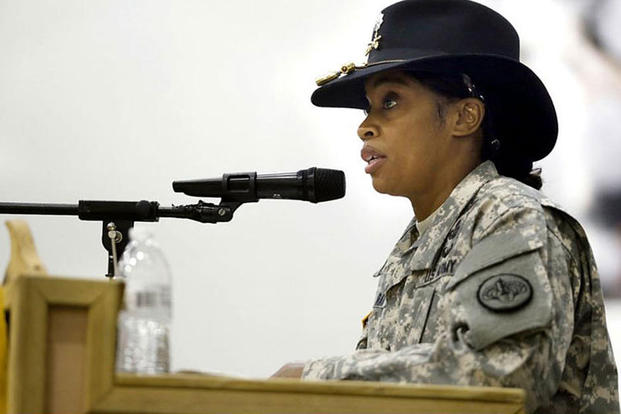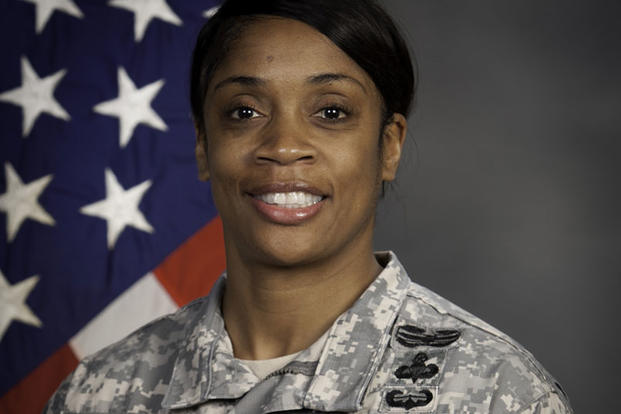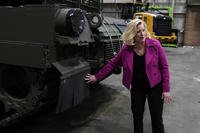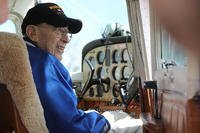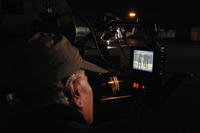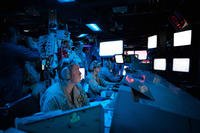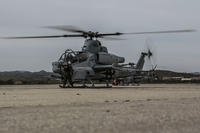Army Lt. Col. Lynn Ray has become one of the key female officers in the Pentagon's grand design to have them serve as combination role models and taskmasters in moving women into previously restricted military occupational specialties.
The implementation plan varies from service to service, but the bottom line is that "the standard is the standard across the board" for men and women, said Ray, the first commander of the newly formed "Pioneer" Regimental Engineer Squadron of the storied 3rd Cavalry Regiment of the First Cavalry Division based at Fort Hood in Texas.
"I think it's a fantastic thing that we've opened up the combat engineer 12B MOS to enlisted soldiers. I think it's phenomenal. I think everything comes in the time that it should, and I think the time is right -- where our society, our military and the way we think -- is more open to it," Ray said.
However, the "young ladies" seeking to make the grade in her unit will get no slack, Ray said. "As a woman deciding on whether women qualify as 12 Bravo -- well, I look at them as just the same, the same training, the same reception, the same standards that need to be met by a male soldier. That is the absolute most important thing."
Of the 760 troops in her squadron, about 60 now are enlisted women, Ray said. "They are volunteering to do something, break the mold, go outside of themselves -- that tells me they want to be a combat engineer, they want to be in that MOS. They weren't forced into it. That's half the battle."
"I did not shave off the standards or anything when these young ladies got here, and they have not disappointed" thus far, Ray said.
Army Opens Up Positions
The Army opened up combat engineer positions to women last June ahead of Defense Secretary Ashton Carter's historic decision last December to lift all restrictions against women, including in the infantry, armor, artillery and special operations.
The decision reversed generations of military tradition and was not without controversy. Joint Chiefs Chairman Gen. Joseph Dunford was conspicuously absent from Carter's announcement at a Pentagon news conference. As Marine Corps commandant, Dunford had sought "exceptions" for the Marines from opening all billets, but his recommendation was rejected by Carter and Navy Secretary Ray Mabus.
In March, the services submitted their "implementation" plans for integrating women into new billets that were reviewed by Deputy Defense Secretary Bob Work and Air Force Gen. Paul Selva, the vice chairman of the Joint Chiefs of Staff.
In a statement, Carter said the department's top priority was to implement the changes "the right way, because the combat effectiveness of the world's finest fighting force is paramount."
A crucial role in the implementation plan was assigned to women officers. The Army and Marine Corps will take a "learn first" approach, integrating female officers and senior enlisted women into previously closed units before integrating junior enlisted women, to "ensure they have leaders," Carter said.
"This will help ensure that women officers play a key leadership role, set the right example, and enhance teamwork wherever possible," he said. "As a result, our military will be even better at finding and training not only the most qualified women, but also the most qualified men, for all military specialties."
The first enlisted women began reporting to her Engineer Squadron in January, said Ray, who acknowledged her leadership role in integrating women while downplaying the gender factor.
"I don't feel I'm in a unique position in that respect" because of her positon as a woman commander, Ray said, but "I am in a unique position because I used to be that soldier."
Ray, 48, of Philadelphia, joined the Army in 1987. She had been going to Tuskeegee University in Alabama but her grades weren't that good and the student loans were piling up, she said.
Ray saw the Army recruiting commercial with the catchphrase "Be All You Can Be" and decided to give it a try. The opportunities for women in the military then were much more limited, but Ray said she never saw that as a drawback.
She served 10 years in the enlisted ranks before going to Officer Candidates School. Along the way, she picked up her undergraduate degree from Campbell University and a masters in human resources from the John Jay College of Criminal Justice at the City University of New York. She has served in Panama, Kosovo and Germany, as well as in Iraq and Afghanistan.
'I Used to Be the Only One of Something'
In her career, she said, "I used to be the only one of something, the only female airborne in an MP [Military Police] platoon at Fort Bragg for a while, or the only one of a certain skill set."
In that sense, Ray said, she has a responsibility to the young female enlisted soldiers coming to her unit "to help them navigate some of those areas that they may feel either uncomfortable with, or never have dealt with before -- let them know that this is how you deal with these things."
One of those women Ray has helped to navigate through the new tasks was 18-year-old Pvt. Lashonda Ivy, of the 43rd Combat Engineer Company of the Regimental Engineer Squadron, according to a 3rd Cav news release by Staff Sgt. Tomora Clark.
"I knew I wanted to join right after graduating high school," said Ivy, of Merrillville, Indiana. "My recruiter asked me if I wanted to blow stuff up, so I picked this MOS. Then [the recruiters] told me after I picked my job that I was making history -- I didn't know females weren't in combat jobs yet."
"The other soldiers in the unit are like my brothers," said Ivy, who will soon deploy with her unit to Afghanistan. "I'm looking forward to deploying with my unit because we've formed a close bond through training, and I know they have my back."
-- Richard Sisk can be reached at richard.sisk@military.com.
